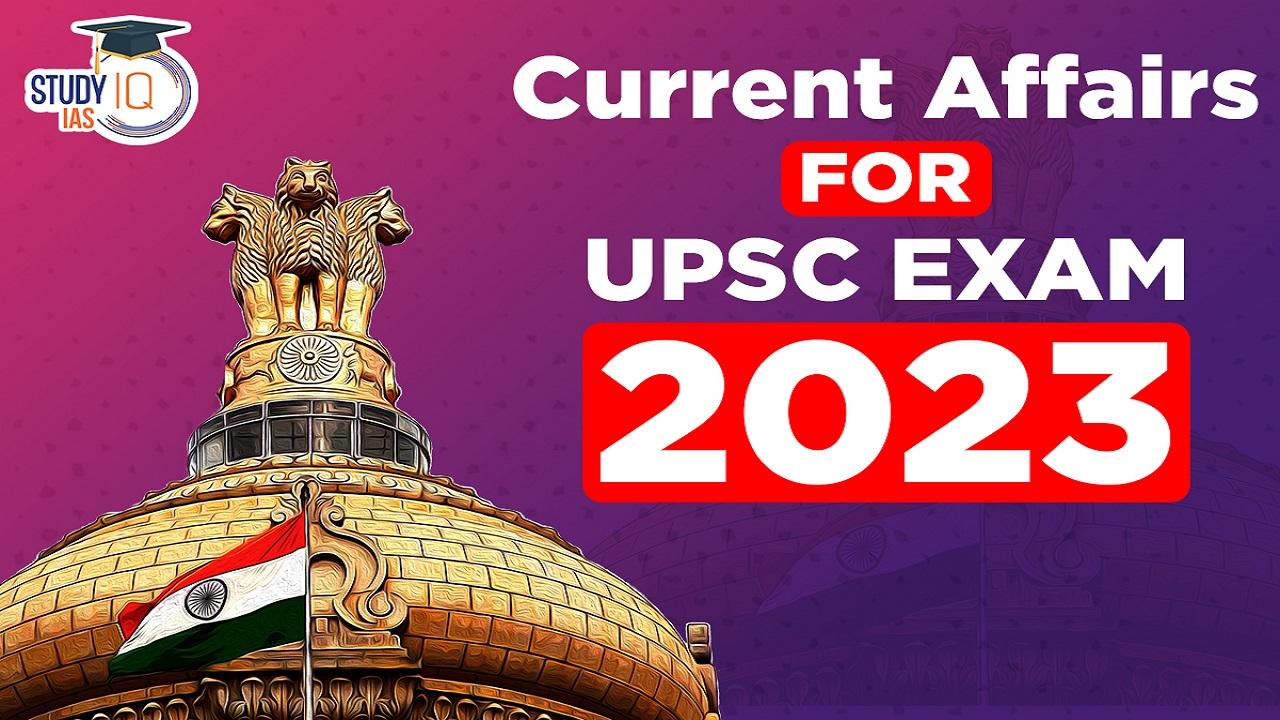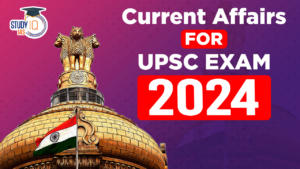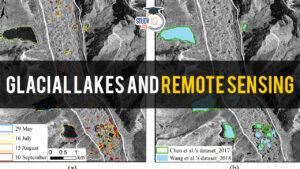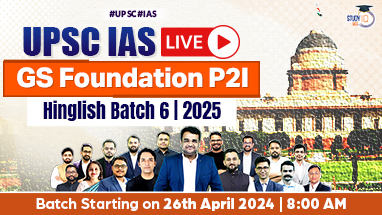Current Affairs 24th August 2023 for UPSC Prelims Exam
Bharat New Car Assessment Programme (BNCAP)
Context: Union government, in partnership with London-based Global NCAP, will introduce the Bharat New Car Assessment Programme (BNCAP) crash testing standards for vehicles starting 1 October to enhance road safety in India.
About the Bharat New Car Assessment Programme (BNCAP)
- Objective: The programme aims to increase the localization of safety components, ultimately contributing to the production of safer vehicles in the country.
- Key features of the BNCAP:
- BNCAP is modelled on the Global New Car Assessment Programme (Global NCAP), a project of the Towards Zero Foundation, which is a U.K.-registered charity that promotes the universal adoption of the United Nation’s motor vehicle safety standards worldwide.
- Under the BNCAP framework, vehicles will be assigned star ratings, facilitating consumers in selecting safer cars and encouraging competition among original equipment manufacturers (OEMs) to produce safer vehicles.
- The new system will become operational on 1 October, with about 6-8 government-certified testing stations already operational near auto hubs in the country.
- Initially, crash testing will be voluntary, but as testing capacity becomes more readily available, the rules may be made more stringent.
- Applicability: It will be applicable to passenger vehicles with not more than eight seats in addition to the driver’s seat with a gross vehicle weight not exceeding 3,500 kg.
- Rating Methodology: A rating between one to five stars will be assigned to a vehicle after an evaluation of three parameters — adult occupant protection, child occupant protection, and safety assist technologies present in the car.
Current Affairs 23rd August 2023 for UPSC Prelims Exam
India Stack
Context: India signs MoU with Trinidad and Tobago for sharing India Stack solutions.
About India Stack
- India Stack is a collection of open APIs and digital public goods that aim to facilitate identity, data, and payment services on a massive scale.
- An open API, also called public API, is an application programming interface made publicly available to software developers.
- Open APIs are published on the internet and shared freely, allowing the owner of a network-accessible service to give a universal access to consumers.

- It is a government-led initiative that focuses on building a robust digital infrastructure to enable various digital services across different sectors.
- India Stack aims to streamline and enhance identity verification, data exchange, and digital payment processes to make them more accessible and efficient for citizens.
- The key components of India Stack include Aadhaar (unique biometric-based identification system), Unified Payments Interface (UPI) for instant digital payments, and Digital Locker for secure storage of personal documents.
- The components of this collection are owned and maintained by different agencies.
- Aadhaar products such as e-auth and e-KYC are owned by the Unique ID Authority of India.
- eSign is a technology specification which is maintained by the Ministry of Communications and Information Technology.
- Digilocker is owned by the Ministry of Electronics and Information Technology.
- UPI is owned by the National Payments Corporation of India.
- The Account Aggregator framework is regulated by RBI and its technology standards and owned by ReBIT.
- The principles, technologies, and functionality of India Stack can be applied in any country.
- None of the systems which comprise India Stack require any proprietary technology or intellectual property which would preclude their implementation in any other country.
East Asia Summit
Context: The Prime Minister of India and Chinese President may attend the East Asia Summit in Indonesia in September 2023.
About East Asia Summit
- Definition: The East Asia Summit (EAS) is the Indo-Pacific’s premier forum for strategic dialogue.
- Aim: It is the only leader-led forum at which all key Indo-Pacific partners meet to discuss political, security and economic challenges facing the region, and has an important role to play in advancing closer regional cooperation.
- Members: The EAS has 18 members – the ten ASEAN countries (Brunei, Cambodia, Indonesia, Laos, Malaysia, Myanmar, the Philippines, Singapore, Thailand, Vietnam) along with Australia, China, India, Japan, New Zealand, the Republic of Korea, Russia and the United States.
- ASEAN leads the forum, and the chair position rotates between ASEAN Member States annually.
- Summit: The EAS calendar culminates in the annual Leaders’ Summit, which is usually held alongside ASEAN Leaders’ meetings in the fourth quarter of every year.
African Union
Context: The African Union recently suspended Niger from all of its institutions and activities until the effective restoration of constitutional order following last month’s coup.
About African Union
- Definition: The African Union (AU) is a continental body consisting of the 55 member states that make up the countries of the African Continent.
- It was officially launched in 2002 in Durban, South Africa as a successor to the Organisation of African Unity (OAU, 1963-1999).
- Aim:
- Achieve greater unity and solidarity between African countries and their people.
- Defend the sovereignty, territorial integrity and independence of its Member States.
- Accelerate the political and socio-economic integration of the continent.
- Promote and defend African common positions on issues of interest to the continent and its people.
- Encourage international cooperation.
- Promote peace, security, and stability on the continent.
- Structure:
- Assembly of Heads of State and Government: It is the highest decision-making body, consisting of the heads of state and government of member countries.
- Executive Council: Made up of foreign affairs ministers, handles policy matters and makes recommendations to the Assembly.
- African Union Commission: Headquartered in Addis Ababa, is the administrative arm responsible for implementing the decisions of the Assembly and the Executive Council.
- The Peace and Security Council: Responsible for maintaining peace and security on the continent.
- The AU structure promotes the participation of African citizens and civil society through the Pan-African Parliament and the Economic, Social & Cultural Council (ECOSOCC).
- Headquarters: Addis Ababa, Ethiopia
Situation in Niger
- Niger is a key part of the African region known as the Sahel – a belt of land that stretches from the Atlantic Ocean to the Red Sea. The area is plagued by jihadists and beset by military regimes.
- Niger’s democratically elected President Mohamed Bazoum has been overthrown by the presidential guards who stood watch outside his palace.
- As the per guards, the rationale behind the military takeover is a continued deterioration of the security situation and “poor economic and social governance.”
- The multifold issues of weak governments, often composed of elites of certain ethnic communities, engaging frequently in corruption and unable to register economic and social progress, led to military takeovers of elected regimes under the pretext of restoring stability.
- Ethnic clashes and rebellions led stretched militaries to support local civilian militias to counter conflict, which in turn led to widespread violence and human rights violations.
- A suspension means Nigerien representatives, from the head of state down, no longer can vote on AU proposals or participate in the organization’s committees or working groups.



 Current Affairs 27th April 2024 for UPSC...
Current Affairs 27th April 2024 for UPSC...
 Small Finance Banks, Key Features and Op...
Small Finance Banks, Key Features and Op...
 Glacial Lakes and Remote Sensing
Glacial Lakes and Remote Sensing

















